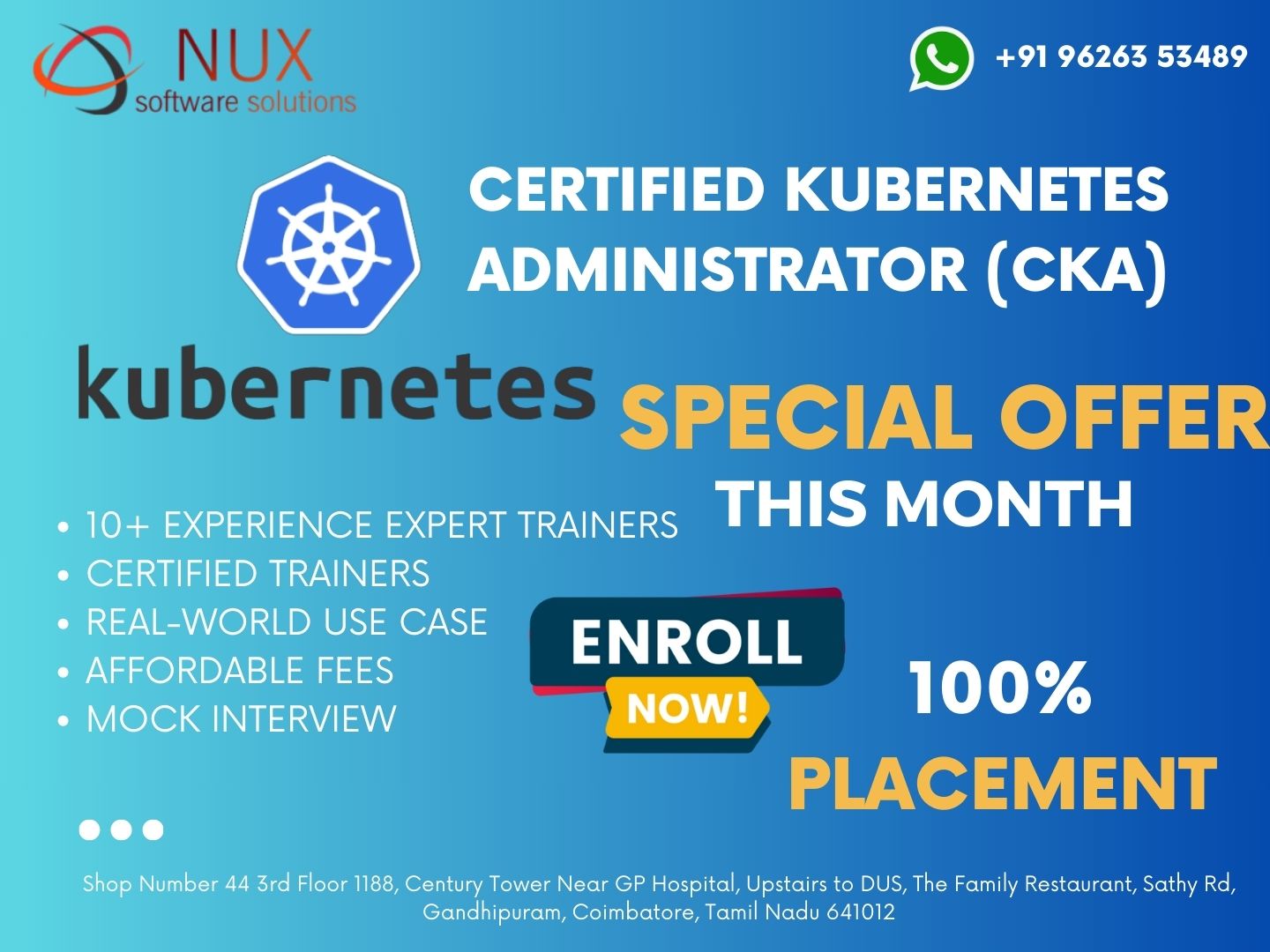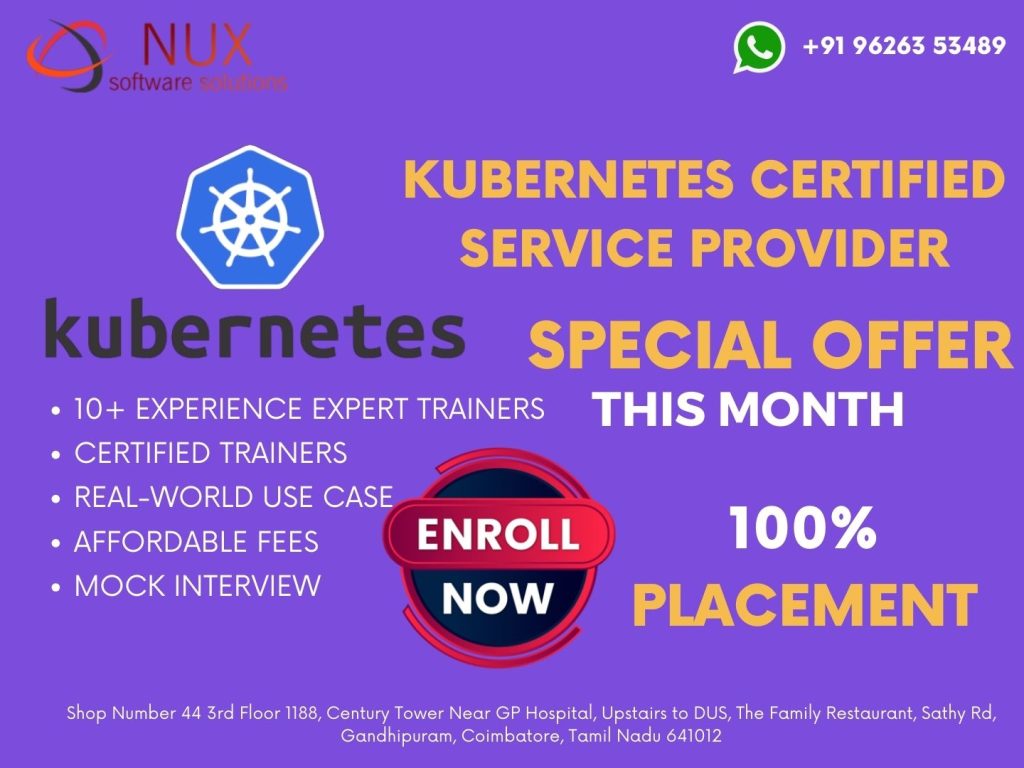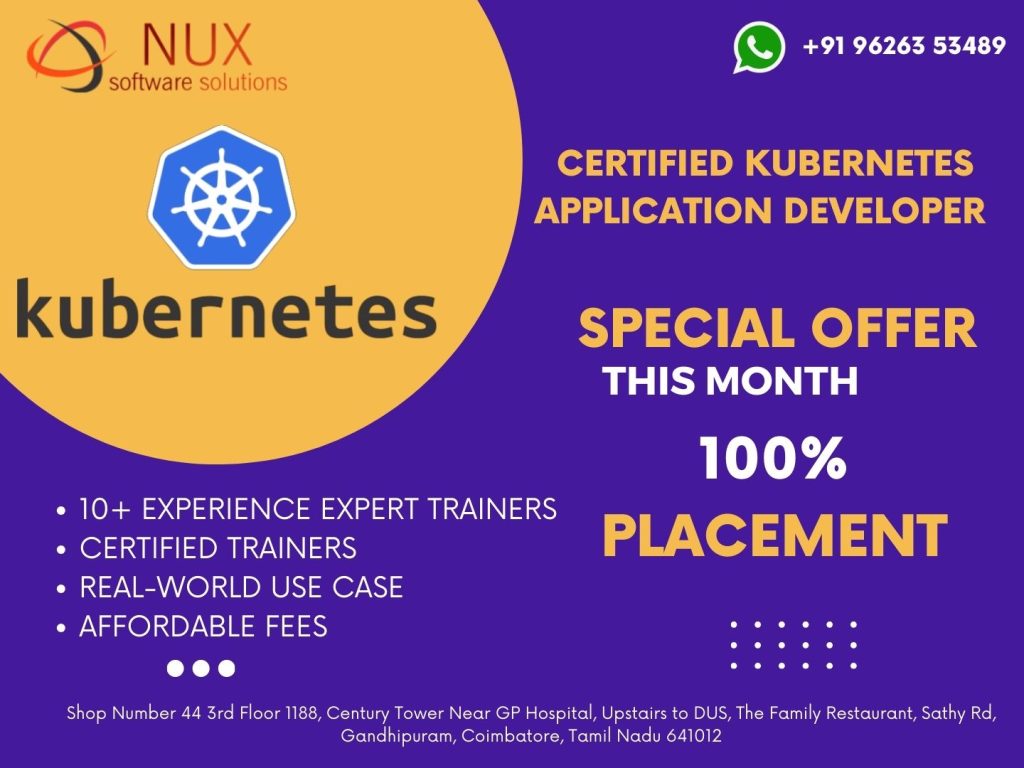kubernetes Administrator (CKA)

Course Summary
The Certified Kubernetes Administrator (CKA) course is a comprehensive, hands-on training program designed for IT professionals, system administrators, DevOps engineers, and cloud practitioners aiming to master the operational aspects of Kubernetes. This course prepares candidates for the CKA certification exam, a performance-based test administered by the Cloud Native Computing Foundation (CNCF) and The Linux Foundation.
Through real-world labs, in-depth tutorials, and command-line practice, this course builds the practical skills needed to install, configure, manage, and troubleshoot Kubernetes clusters in production environments.
What is the CKA Certification?
The Certified Kubernetes Administrator (CKA) is one of the most respected certifications in the cloud-native industry. It validates your ability to:
Deploy and manage Kubernetes clusters
Handle networking, storage, and security configurations
Troubleshoot node, pod, and cluster-level issues
Automate cluster operations using core tools
Ensure high availability, scalability, and reliability of containerized apps
CKA certification proves your competency as a Kubernetes administrator and enhances your credibility in DevOps, cloud infrastructure, and SRE roles.
Who Should Take This Course?
This course is ideal for:
DevOps engineers and site reliability engineers (SREs)
System and network administrators transitioning to Kubernetes
Cloud engineers working in AWS, Azure, GCP, or hybrid environments
IT professionals preparing for the CKA certification exam
Anyone responsible for Kubernetes operations and cluster management
Prior knowledge of Linux commands, containers, and basic networking is recommended.
Key Learning Objectives
By the end of the course, participants will be able to:
Install and configure a Kubernetes cluster from scratch
Understand the Kubernetes architecture (Master and Node components)
Use
kubectlto manage cluster resourcesWork with Pods, Deployments, and Namespaces
Set up networking, services, and ingress controllers
Implement persistent storage with volumes and StorageClasses
Configure RBAC, Secrets, and TLS certificates
Monitor cluster health and system logs
Troubleshoot real-world cluster and application issues
Real-World Applications
Completing the Kubernetes Administrator (CKA) course equips learners to:
Operate production-grade Kubernetes clusters
Migrate applications to a cloud-native infrastructure
Automate scaling, self-healing, and load balancing
Secure Kubernetes environments using best practices
Perform daily operations, upgrades, and backup management
Collaborate effectively in DevOps and cloud-native teams
Benefits of CKA Certification
Global Recognition: Trusted by top tech companies worldwide
Hands-On Focus: Validates real-world administrative skills
Career Growth: Boosts your resume for cloud-native roles
Multi-Cloud Flexibility: Useful across AWS, GCP, Azure, and on-prem environments
Community Respect: Certified professionals are seen as trusted experts in cloud infrastructure
Course Delivery Format
The CKA course typically includes:
Hands-on lab exercises in real Kubernetes environments
CLI practice to match the exam’s performance-based format
Study material aligned with CNCF’s CKA exam blueprint
Mock tests and exam readiness modules
Access to expert mentorship and support (varies by provider)
Conclusion
The Certified Kubernetes Administrator (CKA) course is essential for anyone looking to master Kubernetes operations and gain one of the most in-demand certifications in the DevOps and cloud ecosystem. With a practical, skill-based approach, this course ensures you’re not only exam-ready but fully prepared to manage Kubernetes clusters in the real world.
Start your journey toward Kubernetes mastery and become a certified administrator today.
kubernetes Administrator (CKA) Syllabus
Modules
Chapter 1 :
Cluster Architecture, Installation & Configuration
Manage role based access control (RBAC)
Use Kubeadm to install a basic cluster
Manage a highly-available Kubernetes cluster
Provision underlying infrastructure to deploy a Kubernetes cluster
Perform a version upgrade on a Kubernetes cluster using Kubeadm
Implement etcd backup and restore
Chapter 2 :
Workloads & Scheduling
Understand deployments and how to perform rolling update and rollbacks
Use ConfigMaps and Secrets to configure applications
Know how to scale applications
Understand the primitives used to create robust, self-healing, application deployments
Understand how resource limits can affect Pod scheduling
Awareness of manifest management and common templating tools
Chapter 3 :
Services & Networking
Understand host networking configuration on the cluster nodes
Understand connectivity between Pods
Understand ClusterIP, NodePort, LoadBalancer service types and endpoints
Know how to use Ingress controllers and Ingress resources
Know how to configure and use CoreDNS
Choose an appropriate container network interface plugin
Chapter 4 :
Storage
Understand storage classes, persistent volumes
Understand volume mode, access modes and reclaim policies for volumes
Understand persistent volume claims primitive
Know how to configure applications with persistent storage
Chapter 5 :
Troubleshooting
Evaluate cluster and node logging
Understand how to monitor applications
Manage container stdout & stderr logs
Troubleshoot application failure
Troubleshoot cluster component failure
Troubleshoot networking


